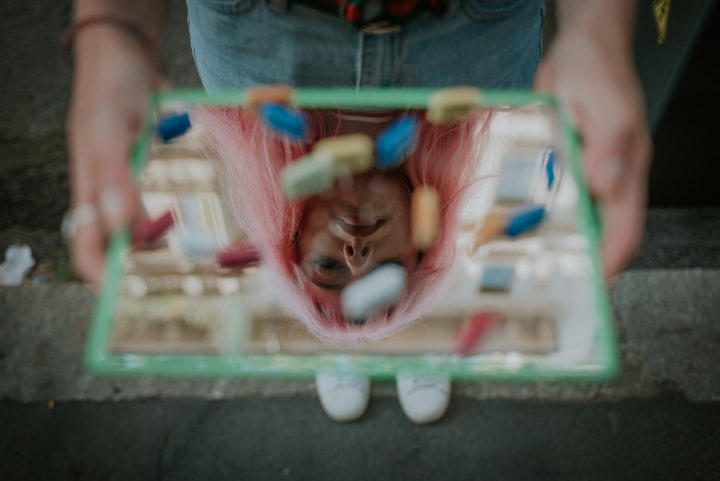Is the UK Doing Enough for Mental Health?
This is a look into the reality of the experiences of young people with trying to find treatment for disorders, such as depression, in the UK on the NHS.

Recently, the deaths of famed rapper Mac Miller, actor Robin Williams and reality TV star Sophie Gredon shook us all to the core we are most scared of—ourselves. Yet still our fears, and our relationships with our own mortality aren’t a conversation for anyone with an aversion to nihilism. With depression being now at epidemic proportions, the UK has now employed a minister solely for the action of suicide prevention. Is it enough? One in five young people have waited over eighteen weeks for mental health intervention. Is the conversation enough?
I have depression, an eating disorder called ARFID, food neophobia and anxiety. ARFID is also known as SED, or selective eating disorder. Unlike anorexia or bulimia, ARFID sufferers have strong anxiety and stress associated with foods based on texture, smell and appearance rather than a difficult relationship with perception of oneself and body fat content. Eating disorders are a form of depression, and come as a coping mechanism for lack of control—eating disorders also have the highest mortality rate. Food neophobia is as it sounds—phobia of foods. Depression is as common as they come—with 23 million sufferers residing in the UK. It seems we all have our fair share of personal battles.
In Scotland, or the general UK, finding public treatment facilities in the NHS is exhausting, patients are reported to have waiting lists as long as two years. So, I found one man suited to my disorder ARFID, Felix Economakis in London, and another place called the Bridge, located in Manchester. Finding appropriate treatment for depression can be limited too. Unfortunately for me, I didn’t find Felix to be the right path for treatment for my ED or at least financially viable due to it being private. My initial thought was why should I have to pay for something that I should be getting help with for free, a service I have waited seven years for and postponed my higher education at university? Why is our NHS in the position of failing people like this? Why is our NHS not coping with one of the biggest epidemics across the UK? I have already been failed...Why am I the one paying the price?
It is not just ED sufferers who have to wait, but so many across all factions of health. Recently, a woman with breast cancer reportedly waited over four and a half hours for an ambulance in Scotland, after collapsing—four hours longer than the general waiting times for an ambulance in India, which is reportedly eighteen minutes.
K Stewart, a young woman aged 22 weighs in with her experiences with mental health.
“I went to the doctor aged twelve as my mum was worried about me.. I was too nervous to talk to my doctor about my emotions... he wouldn’t refer me because I wasn’t showing signs of depression. Years later, I returned again with amplified symptoms. Apparently I wasn’t sick “enough” despite losing weight and wasn’t happy at all. It took them ten months to see that the diagnosis they gave in the first place (after years of fighting) was wrong... at one point, I was told I was too old for help now, despite nothing changing and the symptoms still being there. At one point, in Sky House, I was held down and searched by three doctors and two nurses because I was assumed to be a danger. The only danger I was to anyone, was to myself. I’ll never get over that.”
Connor, aged 26 discusses his experience with treatment of depression.
“One doctor wouldn’t refer to me a psychologist because they said my mental health problems were from smoking weed,” He types quickly. “And I was there like, I’m self medicating because I already had them (symptoms)... making you think you’re the problem.”
“My biggest daily dose of Fluoxetine was 200mg, which as far as I’m aware was the legal limit.”
He thinks doctors hand out drugs too quickly, rather than listening to requests of CBT, also known as cognitive behaviour therapy, or alternative routes.
“...I don’t think I’ve ever been given a clinical diagnosis, it’s always just fill in a questionnaire, they check it and say take these pills... Anytime I would see him he’d just up my dose.”
Another woman aged 25, who wishes to remain anonymous mirrors this, “I just feel when it comes to mental health they just feed you pills and tell you to get in with it.” For some people, they are given anti psychotics under the guise of antidepressants—even one such anonymous man at 25, who was prescribed mirtazapine at age sixteen. He says he still deals with the effects of mirtazapine.
“Without a doubt, they changed me as a person.”
Alice P., is another young woman whom has waited an astronomical ten years for help. She knows she is a sufferer of BPD, borderline personality disorder, from a professional diagnosis. However, her doctor refuses to acknowledge her symptoms, leaving Alice in an unfortunate and uncomfortable situation of knowing, finally reaching catharsis and understanding what she is facing, but can’t get access to the resources. Medical gaslighting is a situation that must end for patients in Scotland, it seems to be an increasing reality for anyone dealing with mental or even physical pain all across the globe. Even Iona, aged 12, was given the wrong information to by her doctor in regards to her back pain—resulting her in only finding out the severity of the issue when flown to Istanbul for a serious back operation, then realised how much of a risk she was in - in a forgein country only just being told the truth. Our children are victims too, not being given the support—and what are the effects long term?
Another, a young man in his early twenties, discussed with me how he had to treat his addiction to legal highs—an experience that cost him five years of his life. Now? This man takes Xanax daily, unwilling to face the day to day reality that there are no support networks that are truly dealing with the depression epidemic at hand. Why are people who desperately need support, being turned away? Why are there networks that people need, yet no resource is to be found? This experience isn’t an isolated one—in three years, seventeen thousand young people in the UK are turned away from resources they desperately need. This is happening all across the country.
Even my own experiences mirror the voices of others, as I was sent away from Crosshouse hospital with a piece of paper containing vague information about yet another private clinic in Glasgow, the Priory after trying to find support for my depressive episode that lasted over a week. I have had severe health complications for over a year, and my body is failing from the increased malnutrition. Apparently, no one knows what is expected to be done in regards to my treatment. Not even in a hospital. This process, took years of taking antidepressants that still affect me two to three years after stopping taking them—I nearly died from being prescribed Prozac. It’s taken me seven long years to still be told information the same information I was told in my early teens.
Another young woman I know has had a terrible experience with her GP. She was raped and needed assistance with her GP. He refused, due to his own morality guiding him and in turn this woman miscarried plus is constantly stuck with the reminder of what happened to her. What is her support? A CPN visit every two weeks. I didn’t want to even ask her if it was enough, as I considered it an offensive question. This level of care is abysmal. How is this woman meant to heal?
So, for the last two years—what is being done?
Well. A minister was appointed, hoorah. Someone got a nice job, while thousands of others are still waiting for confirmation of a fucking psychologist after two years of sitting on a waiting list. England receives £1 billion of investment in spending each year on mental health—Scotland is not so lucky. Scotland was set to receive 100m of spending, but only received 30m. Scotland has no guaranteed councilling support networks in schools—yet prisons in England have mental health support but the four million children living in poverty in Scotland don’t even have access to so much as a councillor or a teacher trained in mental health. Scotland is the only country in the UK not to receive this and in the last year there have been an 8% rise in suicides. Yes, funding has increased. Sure, to an extent, that’s progress. But has it increased enough alongside inflation? No. Has enough government funding changed the outdated resource facilities available for mental health? Are people reportedly happier? No. It seems, as a country making do is synonymous with getting by.
And we have the audacity to ask ourselves why we have epidemic!
We have an epidemic because we are failing our most vulnerable from childhood right through to our eldest in the places that need it most.
Nothing changes for the person who feels it’s too little too late.
About the Creator
Megan Cowan
Depression. Anxiety. ARFID.
Untrained writer. Mental health activist/sufferer. Creative. MUA. Artist.
It’s time to change the narrative around mental health.






Comments
There are no comments for this story
Be the first to respond and start the conversation.